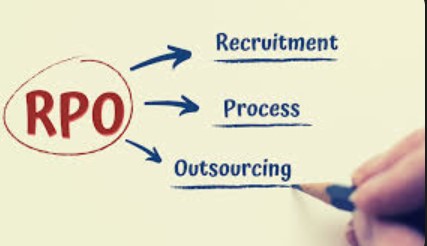
In today’s competitive business environment, the quest for top talent is fiercer than ever. Companies are continually searching for innovative solutions to streamline their hiring processes, reduce costs, and ensure the right fit for their organizational culture. One solution gaining traction across industries is Recruitment Process Outsourcing (RPO). But what is RPO, and why is it becoming a cornerstone of modern talent acquisition strategies?
What is RPO Recruitment?
RPO is a form of outsourcing where an organization transfers all or part of its recruitment processes to an external provider. Unlike traditional recruitment agencies, RPO providers embed themselves deeply into a company’s hiring ecosystem, acting as an extension of the HR department. This partnership goes beyond filling vacancies; it’s about creating a scalable, efficient, and data-driven recruitment strategy tailored to the business’s unique needs.
Why RPO?
The benefits of RPO are multifaceted, making it an attractive option for companies of all sizes. Here’s why organizations are increasingly turning to RPO providers:
-
Scalability
Whether you’re experiencing a hiring surge or a slowdown, RPO models can adjust to meet your demands. This flexibility is invaluable for organizations navigating seasonal hiring trends, rapid expansions, or fluctuating market conditions. -
Cost Efficiency
Traditional hiring processes can be expensive and time-consuming. RPO providers leverage economies of scale, advanced technology, and industry expertise to reduce costs while maintaining high-quality outcomes. -
Access to Expertise and Technology
RPO providers bring specialized knowledge, industry insights, and cutting-edge recruitment technologies. From AI-driven candidate sourcing to predictive analytics, these tools enhance the efficiency and effectiveness of the recruitment process. -
Improved Candidate Experience
A seamless, engaging recruitment process leaves a lasting impression on candidates. RPO providers focus on creating a positive candidate journey, ensuring your brand reputation remains intact—even for those not hired. -
Enhanced Metrics and Insights
Data-driven decision-making is at the core of RPO. Providers deliver comprehensive analytics on hiring trends, time-to-fill, cost-per-hire, and more, empowering companies to refine their strategies continuously.
How Does RPO Work?
The RPO process typically involves several key steps, customized to fit the client’s needs:
-
Discovery and Planning
The provider collaborates with the company to understand its goals, culture, and recruitment challenges. This phase lays the foundation for a tailored recruitment strategy. -
Sourcing and Attracting Talent
Using innovative tools and networks, the RPO provider identifies and engages potential candidates. They may also manage employer branding to attract top-tier talent. -
Screening and Selection
Providers handle everything from initial screenings to interviews and assessments, ensuring only the best candidates move forward. -
Onboarding Support
Some RPO providers extend their services to include onboarding, ensuring new hires transition smoothly into their roles. -
Continuous Improvement
Post-hiring reviews and analytics help refine the process, addressing any gaps and optimizing for future success.
Real-World Applications of RPO
RPO isn’t just for large enterprises; it’s also highly effective for startups and mid-sized companies looking to scale. For example:
- Startups: With limited resources, startups can leverage RPO to build a robust hiring process without investing heavily in internal HR infrastructure.
- Healthcare: The industry’s high turnover rates and demand for skilled professionals make RPO a valuable tool for maintaining staffing levels.
- Technology: Tech companies often face fierce competition for talent. RPO providers offer strategies to attract and retain specialized candidates in this dynamic sector.
Challenges and Considerations
While RPO offers numerous benefits, it’s not without its challenges. Companies must choose the right provider, ensuring alignment in values, culture, and goals. A poorly managed RPO relationship can lead to miscommunication and unmet expectations.
Additionally, organizations should clearly define the scope of the RPO engagement. Transparency and regular communication are key to a successful partnership.
The Future of RPO
As businesses continue to navigate economic uncertainty and talent shortages, the demand for RPO services is set to rise. Advances in recruitment technology, combined with the increasing need for personalized and data-driven hiring strategies, will solidify RPO’s role as a vital component of modern HR practices.
Recruitment Process Outsourcing is more than a trend; it’s a strategic approach to talent acquisition that aligns with the complexities of today’s job market. By partnering with an RPO provider, companies can not only fill positions but also build a sustainable talent pipeline that drives long-term success.






Leave a Reply